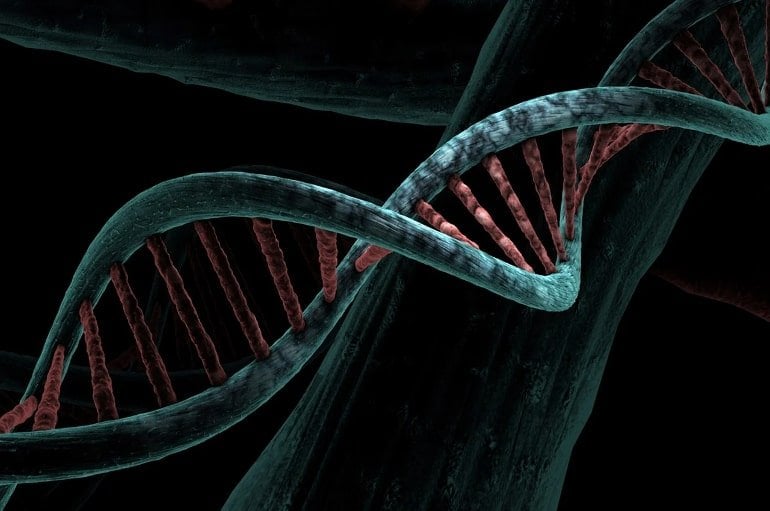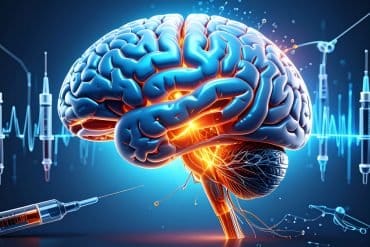Summary: The deletion of the autism-associated Tbx1 gene results in slower cognitive processing and decreased myelin in mouse models.
Source: UT Health San Antonio
Myelin, a sheath of insulation around nerves that enables electrical impulses to efficiently travel through the central nervous system, is diminished in mice that have a gene deletion associated with autism spectrum disorder, new research finds.
Scientists at The University of Texas Health Science Center at San Antonio (also referred to as UT Health San Antonio) reported the discovery in the journal Molecular Psychiatry on Nov. 5. In mice the team deleted one copy of a gene, Tbx1, that is encoded in the chromosome 22q11.2 region linked to impaired cognition.
“Variants of this gene, Tbx1, are associated with autism spectrum disorder, intellectual disability and many other developmental issues,” said Noboru Hiroi, PhD, professor of pharmacology at UT Health San Antonio. “These ultra-rare variants are found in only a few families in the world.”
The researchers observed that Tbx1 deletion significantly impacted cognitive speed of mice on two tests: the Morris water maze, which challenges spatial memory, and attentional set shifting, which taxes cognitive flexibility.
Collaborating with scientists at Tohoku University in Japan who performed whole-brain magnetic resonance imaging (MRI) studies, the Texas scientists sought to learn which brain regions had altered white matter. Robust changes were seen only in the fimbria, a band of nerve fibers that connect various brain regions with the hippocampus, the latter of which is a key center of learning and memory.
“That is a very regionally specific deficit,” Dr. Hiroi said. The team confirmed the findings through electron microscopy.
In analyzing the slower cognition exhibited by the mice, the researchers hypothesized that myelin, the sheath of fat and protein that increases conduction of impulses across nerves, was negatively impacted.
Indeed, mice lacking one Tbx1 copy did not have as many cells called oligodendrocytes. These are the cells that manufacture myelin.
“This negatively affected the production of the building blocks of myelin, which resulted in these mice not having enough protective fibers,” Dr. Hiroi said. “Without the myelin sheath, you don’t have speedy signal conductance between brain regions.”
The study is limited in the sense that researchers cannot compare the speed of mice on a pair of tests with actual cognition in humans. But in the case of understanding gene copy number variants in developmental and psychiatric disorders, both mouse and human studies are important in advancing knowledge, Dr. Hiroi said.

“In a mouse model, we identified structural changes in the brain and a specific gene that, when deficient, is responsible for those changes,” he said. “Tbx1 is only one of many genes implicated in autism and schizophrenia, but this mechanistic basis we found, this impaired myelination, can be tested for generalizability in other copy number variants and ultra-rare variants.”
Funding is by three institutes of the U.S. National Institutes of Health (NIH). They are the National Institute of Mental Health (NIMH), the National Institute on Deafness and Other Communication Disorders (NIDCD) and the Eunice Kennedy Shriver National Institute of Child Health and Human Development (NICHD).
Dr. Hiroi is appointed in the departments of pharmacology, cellular and integrative physiology and cell systems and anatomy at UT Health San Antonio.
About this genetics research news
Author: Will Sansom
Source: UT Health San Antonio
Contact: Will Sansom – UT Health San Antonio
Image: The image is in the public domain
Original Research: Open access.
“Tbx1, a gene encoded in 22q11.2 copy number variant, is a link between alterations in fimbria myelination and cognitive speed in mice” by Takeshi Hiramoto, Akira Sumiyoshi, Takahira Yamauchi, Kenji Tanigaki, Qian Shi, Gina Kang, Rie Ryoke, Hiroi Nonaka, Shingo Enomoto, Takeshi Izumi, Manzoor A. Bhat, Ryuta Kawashima and Noboru Hiroi. Molecular Psychiatry
Abstract
Tbx1, a gene encoded in 22q11.2 copy number variant, is a link between alterations in fimbria myelination and cognitive speed in mice
Copy number variants (CNVs) have provided a reliable entry point to identify the structural correlates of atypical cognitive development. Hemizygous deletion of human chromosome 22q11.2 is associated with impaired cognitive function; however, the mechanisms by which the CNVs contribute to cognitive deficits via diverse structural alterations in the brain remain unclear.
This study aimed to determine the cellular basis of the link between alterations in brain structure and cognitive functions in mice with a heterozygous deletion of Tbx1, one of the 22q11.2-encoded genes.
Ex vivo whole-brain diffusion-tensor imaging (DTI)–magnetic resonance imaging (MRI) in Tbx1 heterozygous mice indicated that the fimbria was the only region with significant myelin alteration. Electron microscopic and histological analyses showed that Tbx1 heterozygous mice exhibited an apparent absence of large myelinated axons and thicker myelin in medium axons in the fimbria, resulting in an overall decrease in myelin.
The fimbria of Tbx1 heterozygous mice showed reduced mRNA levels of Ng2, a gene required to produce oligodendrocyte precursor cells. Moreover, postnatal progenitor cells derived from the subventricular zone, a source of oligodendrocytes in the fimbria, produced fewer oligodendrocytes in vitro. Behavioral analyses of these mice showed selectively slower acquisition of spatial memory and cognitive flexibility with no effects on their accuracy or sensory or motor capacities.
Our findings provide a genetic and cellular basis for the compromised cognitive speed in patients with 22q11.2 hemizygous deletion.







